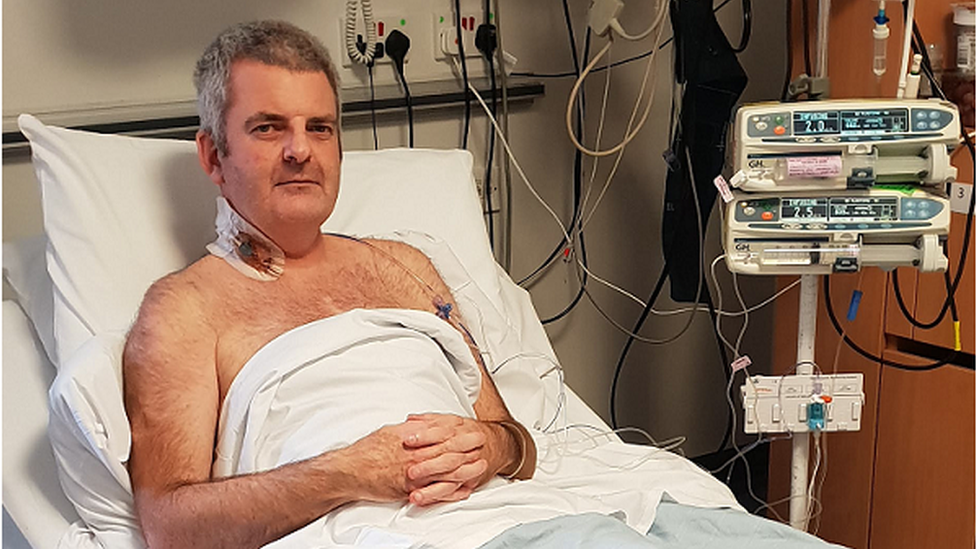Man given transplanted heart that was kept 'alive' outside body
- Published
Man given transplanted heart that was kept 'alive' outside body
A man who received a transplanted heart that was kept 'alive' for five hours outside the body said he feels like he has been given "a whole new life".
James Walton, 34, is the first person at Queen Elizabeth Hospital Birmingham (QEHB) to have a heart transplant using the Heart in a Box machine.
The machine, hailed as "revolutionary" by the hospital, preserves the heart for longer and will be used in addition to the traditional ice box method.
QEHB said it will increase transplants.
Mr Walton's new heart was transported to QEHB using the £150,000 machine, paid for by the hospital's charity and Heart Research UK.
It keeps the heart beating and allows it to be transported over longer distances.
Traditionally the organ is kept in an ice box and stops beating while outside the body. This means its condition deteriorates.
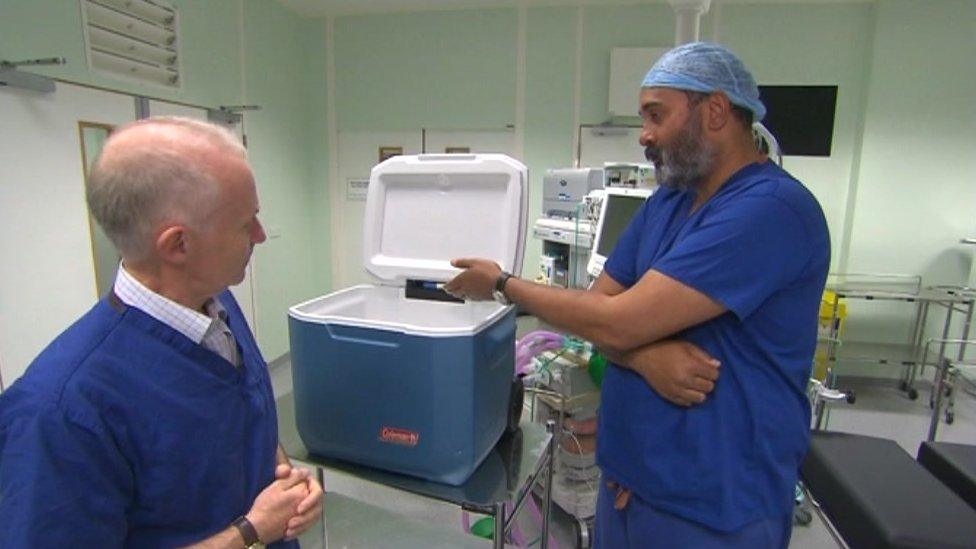
An icebox is normally used to transport donor hearts
Mr Walton, from Stoke-on-Trent, has genetic disorder Marfan Syndrome, which affects the body's tissue and organs.
He has suffered from a ruptured aorta and the bursting of an aortic valve. He also had a pacemaker fitted that stopped working.
Mr Walton said: "I could not do much as it was affecting my breathing, and I couldn't play with my three-year-old Jack and chase him around.
"It was quite hard work and pretty much affected my everyday life."
The joiner also had to give up work, putting financial pressure on the family.
After he spent Christmas in hospital, doctors found a donor.
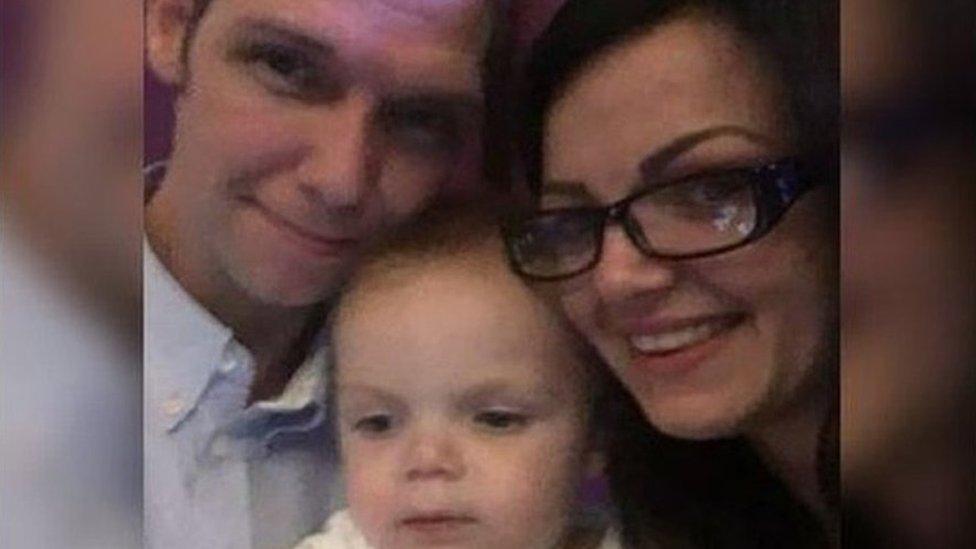
James Walton, pictured with his wife Kat and son Jack, had the operation last month
What is Heart in a Box ?
Heart in a Box keeps a donated heart beating outside the body with blood pumping through the organ, along with immunosuppressant drugs.
The donor heart is placed in a clear chamber the size of a large lunchbox. The organ is kept beating using the donor's blood with oxygen and glucose pumped into the chamber, keeping it in the best possible condition.
The equipment also lengthens the amount of time surgeons have to carry out the transplant, compared to the traditional ice box method.
Currently, only eight out of 10 people receive the transplant they need and more than 1,300 people in the UK die each year waiting for an organ.
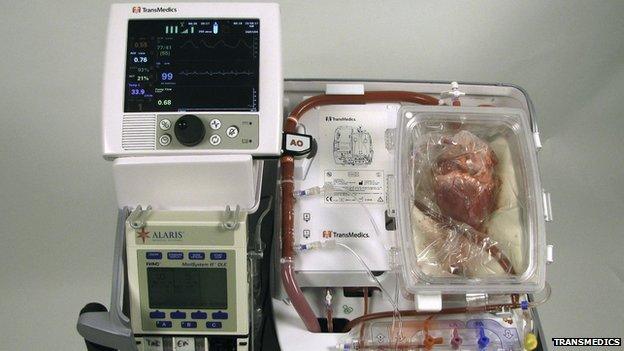
The machine keeps the heart beating outside the body
"It is still early doors but I feel 100 times better," Mr Walton said, after his operation.
"I am looking forward to playing football with my son, and getting back to playing golf.
"I will be starting work soon, when I get the all clear. It has given me a whole new life."

You may also be interested in:

He does not know who his donor was or where his heart came from, but said he was keen to find out in the future.
Dr Jorge Mascoro, director of the heart transplant programme at QEHB, said a donated heart should be re-implanted within four hours to help "the normal functioning of the heart".
He said: "In James's case the heart was implanted between five to six hours after it was retrieved."
The hospital said Heart in a Box had the potential to increase the number of hearts available for transplant by up to 50%.
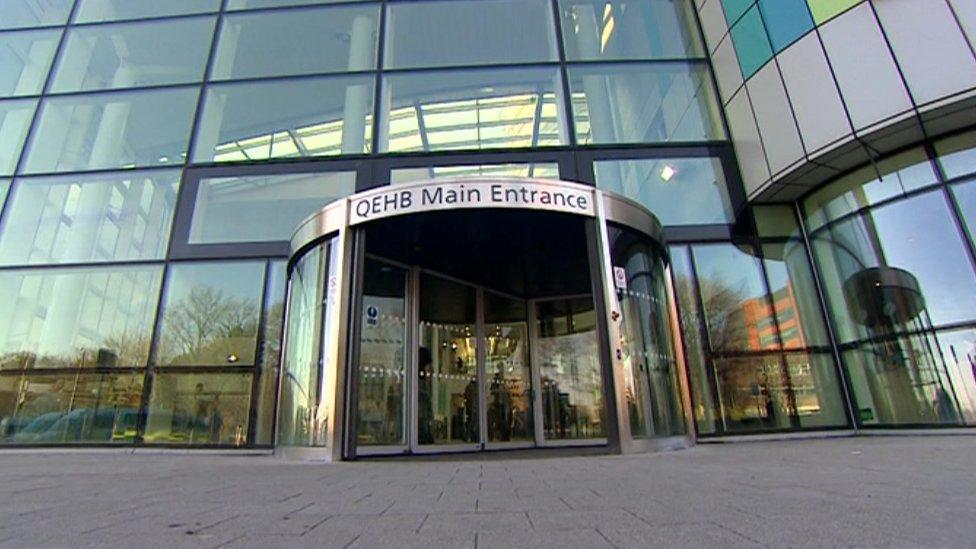
The machines are used by heart transplant units across the country
The machines are also in use in cardiothoracic units in Glasgow, Manchester, Newcastle, London and Cambridgeshire.
But use of the machines' is limited because of the cost.
Dr Mascoro added: "We know the ice box method works for straightforward transplants, and we will still use the traditional way.
"But we are seeing more patients with reoperations which are more complex, and hearts travelling longer distances, and for those patients this technology will be useful."

Follow BBC West Midlands on Facebook, external, on Twitter, external, and sign up for local news updates direct to your phone, external.
- Published5 August 2018

- Published15 January 2019

- Published10 December 2018
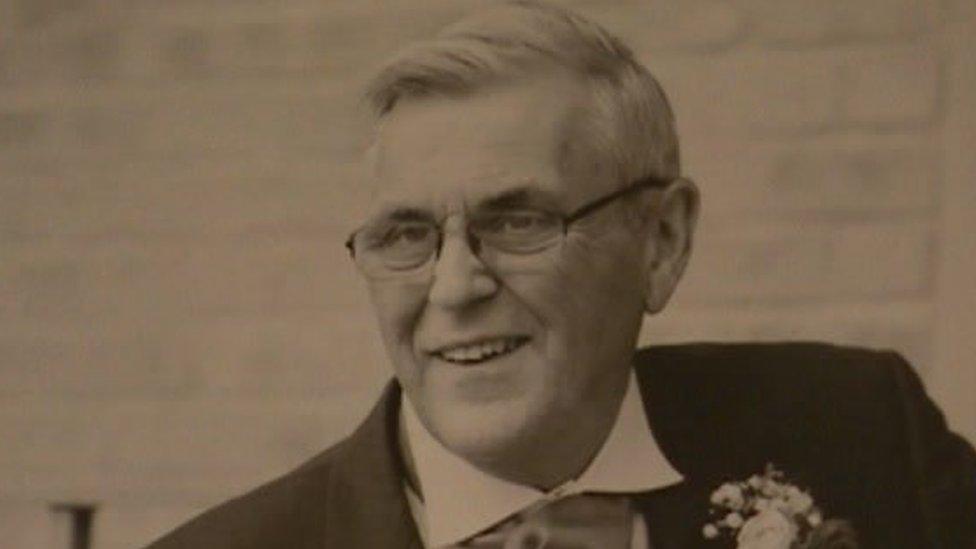
- Published3 September 2018
